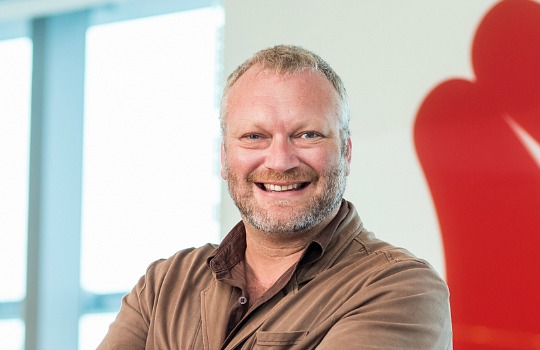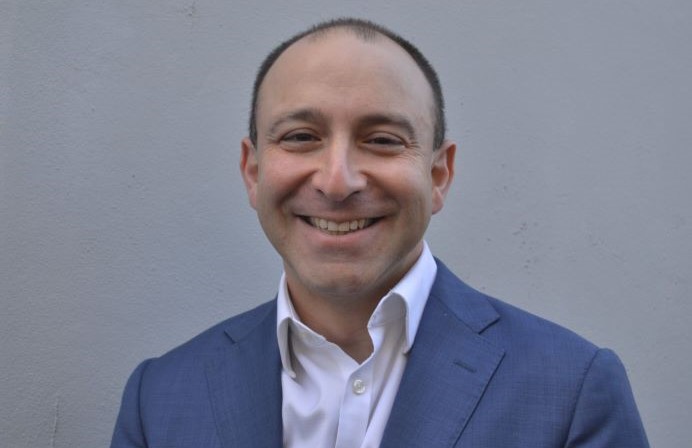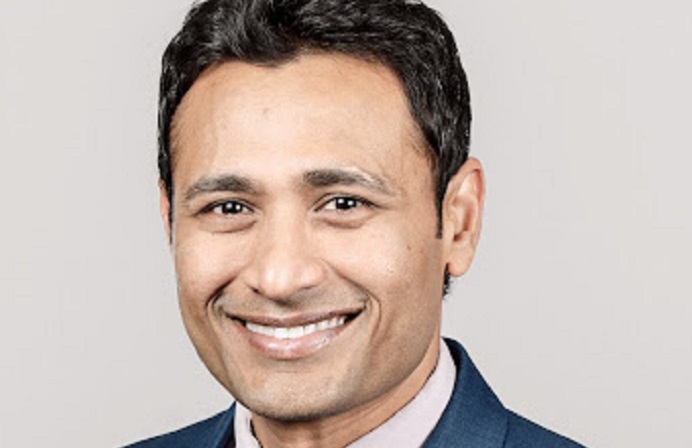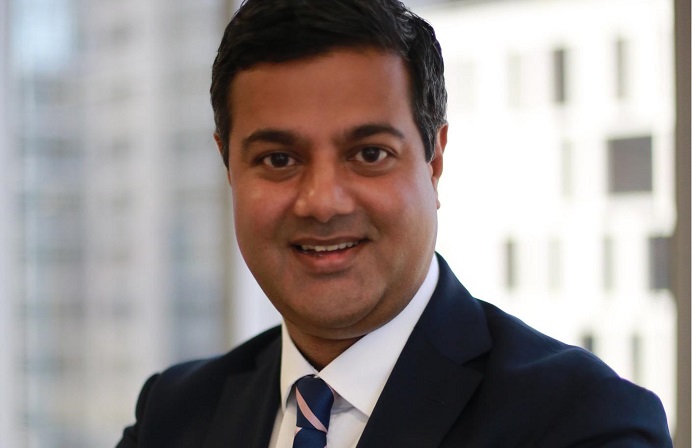
“We are encouraging experimentation and iteration; people won’t get it right the first time and they should not be admonished for that…”
FST Media: What are your business and digital priorities for the next 6 months?
Cross: DBS is focusing on one of our largest internal projects called Iconic Journeys. It’s an ongoing initiative we’re working on to deliver a significant shift in how our customers interact with the bank. My team, the DBS Innovation Group (DiG) is helping to advance this by providing the necessary training and tools to help everyone at DBS adopt an innovative mindset. This has been an ongoing goal, to ensure that the drive for innovation is inclusive where everyone in DBS is involved.
We are also expanding our innovation footprint to Hong Kong and India so we are learning how to regionalise our programs to get more of our people and partners involved in the business of innovation.
FST Media: What technology or innovation is proving to be the biggest game changer across financial services?
Cross: At the moment I would say that it is cloud computing, I know that it has been around for many years but only now are regulators feeling comfortable with banks utilizing these platforms at scale.
Combining this with designing services with lowered or even no operations, banks are able to deliver products and services with a total lower cost of operations and hence can return that value to customers in the form of more attractive rates. A good example is our Digibank in India where we were able to offer a market leading 7 per cent savings rate.
FST Media: How are you leveraging big data and analytics to deliver customer-centric services?
Cross: We have a number of data science teams within the bank including a joint lab with the Singapore governments research arm A*STAR. We are using big data and analytics in a variety of ways at the moment. For example some areas we’re exploring include looking at how artificial intelligence can be used to predict potential trade fraud for customers helping us as a bank to manage our risk. Additionally, we are also looking at real-time analysis, to project future cash flows and cash conversion which helps us a bank optimise our operations to deliver better services to our customers. As an example, we have been using analytics to predict when our ATMs require refreshing by monitoring incidents such as when customers typically draw money, where the high-traffic locations are. The result of this has led to less long queues at our ATMs, less technical faults and most importantly, happier customers.
Over time, we are hoping to learn more about our own customers’ financial behaviours so we can make sure we recommend timely and relevant services to them. In the main reason we’re doing so is really to help improve their lives, to help them focus on what they want to do and to live more.
FST Media: What are the key advantages and challenges blockchain will present for banking?
Cross: There is quite a lot of confusion around blockchain, for me it actually has nothing to do with finance but is a technology and business design pattern for how you can connect disparate entities that have a low level of trust between them. Once you understand that then the use cases become a lot clearer – trade finance, eKYC and remittances are strong candidates for deployment of this technology. As an aside new technology tends to become ubiquitous in banks when they form part of a larger platform. So when traditional technology providers enable their latest versions of core banking and payment systems with blockchain, we will see a significant rise in the adoption of this technology.
I feel that blockchain will have a much larger impact outside of finance and especially in the management of public record information like company registration and court judgments to name a few.
FST Media: What is the ideal innovation ecosystem?
Cross: First and foremost, innovation should be inclusive. It is not subsumed to just the innovation team, but it should be a culture and mindset for any organisation. This is why at DBS, we’re been actively trying to make everyone an innovator, because they have the ability and capacity to be one, no matter what role they play.
To me, the ideal innovation ecosystem is one where everyone is aligned with the need for innovation. While that typically starts from management, we want everyone within the organisation to be a part of innovation. That does not mean that innovation should be isolated within the organisation however. Never underestimate the significance of partnership. This is one of the major focuses of DBS Innovation Group (DiG). We’re constantly going out to find partners, to collaborate, to learn from them. These partnerships have been key to building the innovation ecosystem in DBS where we want our people to go out and share their experience, but also to learn from others, gain new perspectives and try new things.
FST Media: How can banks and non-traditional financial services work towards innovation?
Cross: For too long, there’s been an ongoing narrative that has pit the banks against new players in the market. That couldn’t be further from the truth. Much of this criticism has stemmed from the notion that Fintech and start-ups want to overtake banks. The truth is, whether you are a bank or any other organisation, disruption is taking place in your industry. You can choose to ignore it but you will surely be usurped. Or you can start to create disruption of your own.
We have started to do that at DBS and to do so, we see it essential to build a collaborative relationship with other players in the market. That is why we introduced our Pre-accelerator programme for start-ups, to engage with these new players. This has been a beneficial relationship for bother where we as a large organisation, can lend our insight, experience as well as information that we have amassed over the years to work with nimbler, more agile companies to produce new products and services to cater to the needs of customers.
FST Media: What is the next big thing for DBS and how will you measure its success?
Cross: We will be launching our Indonesian Digibank early next year to address a very exciting market through a mobile-only offering. We will be measuring this based on adoption, usage and deposits. Digibank in India grew to over 250,000 users in just one quarter and we expect to see a similar performance in Indonesia. What made India so successful that you could just use your thumbprint in a coffee shop to open a full service account with no need to fill out forms or even talk to a banker. We combined this with an artificial agent that serves basic customer needs.
FST Media: How do you build a culture of innovation in your team?
Cross: Personally I focus on four things for my team. Providing protection to them, education, inspiration, and most importantly, freedom. A lot of what we do here to innovate is to learn fast and fail fast. We are encouraging experimentation and iteration; people won’t get it right the first time and they should not be admonished for that. Shielding my team from the usual bureaucracy is essential so they are not afraid to keep trying, making improvements and seeking better ways. Training and education here is also is essential as we have to keep up with the changing trends – they need to be constantly aware about what’s going out there in the markets.
I also encourage my team to have a sales and marketing mindset because everyone in my team, no matter how junior they are, will always have to be advocates and salespeople to fight for their programs and initiatives. And that requires getting senior executives to partner with our innovation programs. This means helping the team to build confidence in their own ideas and learning how to get buy-in and support.
Finally, in an age where innovation tends to be closely tied to technical implementation, we constantly look at how can we share and impart knowledge about the history and future of technology megatrends. Having awareness of these helps my team to reimagine banking for the future and work with teams to discover new untapped opportunities.
FST Media: What is your key piece of career advice?
Cross: Many people I talk to ask how to get a career in innovation or how to be a thought leader, they imagine that one day they could move into a role where do can then “do innovation”. My guidance to them is to just be the best you can in your current position, what does the world best look like for what you do now? Who are the most prominent thought leaders in your current industry? And what are they talking about? Innovation is not a “job” but the way in which you operate wherever you are.
Another thing to note is, be humble and remember that there are many circumstances and people that contribute to your progress. While luck is an important factor in success, the people around you are even more important. Without the support and collaboration of the people around me, we wouldn’t able to roll out all the innovation initiatives we’re introducing. Give recognition to these people around you.





